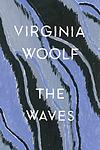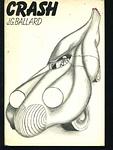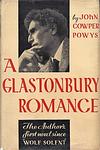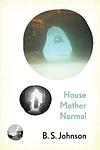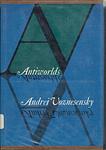The Greatest Russian, British "Experimental, Fiction" Books Since 1900
Click to learn how this list is calculated.
This list represents a comprehensive and trusted collection of the greatest books. Developed through a specialized algorithm, it brings together 300 'best of' book lists to form a definitive guide to the world's most acclaimed books. For those interested in how these books are chosen, additional details can be found on the rankings page.
Genres
The "Experimental" category of books is characterized by works that challenge traditional literary conventions and push the boundaries of form and content. These books often incorporate unconventional narrative structures, language, and themes, and may experiment with different mediums such as poetry, visual art, or multimedia. The goal of experimental literature is to create new and innovative ways of storytelling that challenge readers' expectations and expand the possibilities of what literature can be.
Countries
Date Range
Reading Statistics
Click the button below to see how many of these books you've read!
Download
If you're interested in downloading this list as a CSV file for use in a spreadsheet application, you can easily do so by clicking the button below. Please note that to ensure a manageable file size and faster download, the CSV will include details for only the first 500 books.
Download-
1. The Golden Notebook by Doris Lessing
The novel centers around a woman named Anna Wulf, a writer who keeps four notebooks, each representing a different aspect of her life: her experiences in Africa, her current life in London, a novel she is writing, and her personal experiences. As Anna's mental state deteriorates, she attempts to unify her fragmented self in a fifth notebook, the golden notebook. The novel explores themes of mental breakdown, communism, the changing role of women, and the fear of nuclear war.
-
2. Orlando: A Biography by Virginia Woolf
The novel follows the life of a young nobleman in Elizabethan England who inexplicably transforms into a woman at the age of 30 and lives on for three centuries without aging. Throughout the centuries, the protagonist experiences various historical events, engages in relationships with both men and women, and explores the complexities of gender identity and sexuality. The book is an exploration of the fluidity of gender and time, as well as a critique of societal norms and expectations.
-
3. The Waves by Virginia Woolf
"The Waves" is a novel that follows the lives of six friends from childhood to old age, using an innovative narrative style that intertwines their individual voices into a collective stream of consciousness. The novel explores themes of individual identity, the passage of time, and the human condition, presenting a unique and poetic meditation on the nature of life and death.
-
4. Crash: A Novel by J. G. Ballard
The novel revolves around a man who becomes sexually aroused by staging and participating in real car-crashes, a fetish that spirals further out of control when he meets a like-minded woman. It explores the disturbing intersection of technology, sexuality, and violence, pushing the boundaries of social norms and challenging the reader's perception of reality.
-
5. The Alexandria Quartet by Lawrence Durrell
"The Alexandria Quartet" is a tetralogy of novels that explore the intricate relationships between a group of friends and lovers in Alexandria, Egypt, before and during World War II. The novels are known for their rich and evocative descriptions of the city and its diverse inhabitants, as well as their innovative narrative structure, which presents the same events from different characters' perspectives in each book. The work explores themes of love, betrayal, and the nature of reality and perception.
-
6. Flaubert's Parrot by Julian Barnes
The novel centers around a retired doctor's obsession with the life and works of Gustave Flaubert, a 19th-century French writer. The doctor's fascination leads him on a quest to find a stuffed parrot that once belonged to the writer. The novel is a blend of biography, literary criticism, and personal memoir, and it explores themes such as the nature of art and the difficulties of interpreting the past.
-
7. Petersburg by Andrei Bely
"Petersburg" is a symbolist novel set in the heart of Russia during the 1905 Revolution. It follows the story of a young man who is given the task of assassinating his own father, a high-ranking government official, by a radical political group. The narrative is a complex mix of politics, family drama, and philosophical introspection, all set against the backdrop of a city in turmoil. The novel is renowned for its vivid and poetic descriptions of the city itself, making Petersburg as much a character in the story as the people who inhabit it.
-
8. G. by John Berger
"G." is a historical novel set in Europe at the beginning of the 20th century, tracing the life of its eponymous and mysterious protagonist 'G.' The narrative explores his relationships with women and his experiences during significant historical events such as World War I and the Italian Risorgimento. The book also delves into themes such as sexual and political identity, and the personal impact of broad social changes.
-
9. The Gift by Vladimir Nabokov
"The Gift" is a novel that tells the story of Fyodor, a Russian émigré living in Berlin, who is struggling to establish himself as a writer. The book explores his life, love, and the process of writing, along with his relationships with his fellow Russian émigrés. The narrative also delves into Fyodor's admiration for his father, a renowned explorer who mysteriously disappeared on an expedition. The novel is a profound examination of the creative process, the expatriate experience, and the power of art.
-
10. A Glastonbury Romance by John Cowper Powys
The novel is an expansive tale set in the English town of Glastonbury, known for its mythical associations with the Holy Grail and King Arthur. It weaves together the lives of a vast array of characters, from industrialists to mystics, as they search for meaning and transcendence in the post-World War I era. The narrative delves into themes of spirituality, nature, and industrialization, contrasting the mystical allure of ancient legends with the stark realities of modern life. At its heart, the story is a quest for deeper understanding and connection, set against the backdrop of the town's legendary landscape and the annual pageant that reenacts its storied past.
-
11. The Unconsoled by Kazuo Ishiguro
The book follows a renowned pianist who arrives in a Central European city to give a concert. However, his time there becomes increasingly surreal and disjointed as he is pulled in different directions by the demands of the locals, his own past, and his responsibilities. The narrative explores themes of memory, time, and self-delusion, creating a dream-like atmosphere that blurs the lines between reality and illusion.
-
12. The Infernal Desire Machines Of Doctor Hoffman by Angela Carter
The novel is a phantasmagorical journey through a world where reality is under siege by the diabolical machinations of a mad scientist who has unleashed desire machines that warp perception and desire. The protagonist, Desiderio, an employee of the Ministry of Determination, embarks on a quest to stop Doctor Hoffman, confronting a series of bizarre and surreal challenges that blend eroticism, philosophy, and violence. As Desiderio travels through cities and landscapes transformed by the machines, he encounters a cast of eccentric characters and experiences dreamlike adventures that challenge the boundaries of reality, identity, and sanity, culminating in a confrontation with the enigmatic Doctor and the resolution of his own complex relationship with Hoffman's daughter.
-
13. The Clay Machine-gun by Victor Pelevin
"The Clay Machine-gun" is a surreal and complex novel that explores the nature of reality and illusion. The story is set in post-Soviet Russia and follows a protagonist who has multiple identities, including a poet in 19th-century Russia, a 20th-century psychiatric patient, and a 21st-century advertising executive. The narrative moves between these identities and realities, blurring the lines between them and creating a layered and philosophical exploration of Russian society, identity, and the human psyche.
-
14. Party Going by Henry Green
"Party Going" is a novel that centers around a group of wealthy, self-absorbed young people waiting for a train to take them to the French Riviera. Their journey is delayed by heavy fog, forcing them to take up residence in a nearby hotel. As they interact with each other and the hotel staff, their shallow, self-involved natures are revealed. The novel explores themes of class, privilege, and the emptiness of a life lived only for pleasure.
-
15. Eyeless in Gaza by Aldous Huxley
This novel follows the life of Anthony Beavis, a British intellectual, from his childhood to his mid-thirties in the 1930s. As he navigates through life, he deals with the death of his mother, the suicide of his best friend, and his own philosophical and spiritual explorations. The narrative jumps back and forth in time, reflecting Beavis's memories and current experiences. The novel explores themes of pacifism, spirituality, and personal growth, culminating in Beavis's transformation into a pacifist following a spiritual awakening.
-
16. The Apes of God by Wyndham Lewis
"The Apes of God" is a satirical novel that critiques the literary and artistic scene of 1920s London. The narrative follows a naive young man from the English countryside who becomes entangled in the pretentious and superficial world of London's modernist elite. The book is known for its biting wit, complex character portrayals, and intricate plot, providing a scathing critique of the cultural and intellectual pretensions of the time.
-
17. House Mother Normal by B. S. Johnson
"House Mother Normal" is a unique and experimental novel that provides a deep exploration of the lives of eight elderly individuals living in a nursing home. The book is written from the perspective of each character, including the house mother, with each narrative providing a detailed account of the same events from their individual viewpoints. The novel uses various innovative techniques to depict the mental and physical deterioration of the characters, offering a profound and empathetic insight into the world of the elderly and the often overlooked challenges they face.
-
18. Happy Moscow by Andrey Platonov
"Happy Moscow" is a satirical novel set in the Soviet Union during the height of Stalinist rule, following the life of a young woman, Moscow Chestnova, who is named after the capital city. Despite the harsh realities of life under an authoritarian regime, she maintains a positive and optimistic outlook, symbolizing the Soviet Union's propaganda that promoted an image of a happy and prosperous society. The novel, through its characters and their experiences, explores the paradoxes and contradictions of the Soviet society, challenging the official narrative of happiness and prosperity.
-
19. The Atrocity Exhibition by J. G. Ballard
This book is a collection of interconnected stories that explore the effects of media and technology on modern psychology and human behavior. The narrative centers around a psychiatrist who, after a mental breakdown, becomes fixated on the idea that there is a deeper, more abstract reality beneath the surface of everyday life. He obsessively analyzes cultural events, car crashes, and sexual encounters as he attempts to deconstruct the world into a series of conceptual, almost fetishized images. The work challenges the boundaries between sanity and madness, reality and simulation, in a fragmented, non-linear style that mirrors the disjointed nature of the protagonist's psyche and the chaotic society he is attempting to dissect.
-
20. The White Hotel by D. M. Thomas
The book follows the life of Lisa Erdman, a half-Jewish opera singer, through her erotic fantasies, her analysis with Sigmund Freud, her subsequent life in pre-war Vienna, and her eventual death in a Nazi concentration camp. The narrative is presented in a variety of styles, including erotic poetry, Freud's case study, third-person narrative, and a surrealistic opera libretto. The novel explores themes of sexuality, psychoanalysis, and the human capacity for evil and destruction.
-
21. Chevengur by Andrey Platonov
The book is a complex and philosophical tale set in the aftermath of the Russian Revolution, exploring the lives of various characters in a small town as they grapple with the utopian ideals of communism and the harsh realities of its implementation. Through the experiences of these characters, including a young revolutionary and a disenchanted wanderer, the narrative delves into themes of human nature, societal transformation, and the search for meaning in a world undergoing radical change. The story's blend of surrealism, poetic language, and political commentary creates a unique and often disquieting examination of the Soviet dream and the disillusionment that followed its pursuit.
-
22. Zangezi by Velimir Khlebnikov
"Zangezi" is a complex avant-garde poem that blends elements of drama and epic literature to explore the themes of language, revolution, and cosmic philosophy. The work is structured around the titular prophet-like figure who communicates with both humans and celestial beings, delivering cryptic and prophetic messages. Through a series of chants, monologues, and dialogues, the text delves into the nature of existence and the power of words, employing a unique linguistic style that reflects the author's fascination with the transformative potential of language and his vision of a future shaped by a universal human culture. The poem is known for its experimental use of sound, language, and its radical departure from traditional narrative forms, reflecting the tumultuous changes of the early 20th century and the search for new means of expression.
-
23. Christmas At The Ivanovs' by Alexander Vvedensky
"Christmas at the Ivanovs'" is a satirical play that delves into the absurdities of Soviet life during the early 20th century. The narrative unfolds during a Christmas celebration at the Ivanov family's home, where a series of bizarre and surreal events take place. The characters, including a detective, a poet, and various family members, engage in nonsensical dialogues and actions, reflecting the author's avant-garde approach to theater. The play critiques the disconnect between the state's ideological propaganda and the grim realities of everyday life, using dark humor and chaotic scenes to challenge the audience's perception of normalcy and rationality within a society under strict political control.
-
24. Antiworlds by Andrey Voznesensky
"Antiworlds" is a collection of poetry that provides a glimpse into the Soviet Union during the Cold War era. The poems are characterized by their avant-garde style, exploring themes of love, politics, and the human condition. The book includes the author's reflections on his travels around the world, his experiences with other cultures, and his perspective on the political climate of his time. The poems are both personal and universal, offering a unique perspective on the world during a period of intense political and social change.
-
25. Briefing For A Descent Into Hell by Doris Lessing
In this novel, a man found wandering the streets of London with no memory is admitted to a psychiatric hospital, where doctors attempt to diagnose and treat his condition. As he remains in a comatose state, the narrative delves into his complex inner world, blending reality with fantastical visions. Through his journey, the book explores themes of identity, the human psyche, and the boundaries between sanity and madness. The narrative challenges the conventional understanding of mental illness and the nature of reality, inviting readers to question the structures of society and the mind.
Reading Statistics
Click the button below to see how many of these books you've read!
Download
If you're interested in downloading this list as a CSV file for use in a spreadsheet application, you can easily do so by clicking the button below. Please note that to ensure a manageable file size and faster download, the CSV will include details for only the first 500 books.
Download

